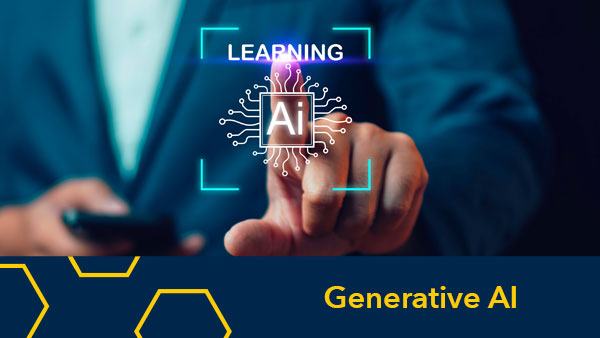James DeVaney, Associate Vice Provost for Academic Innovation and Founding Executive Director, Center for Academic Innovation
@DeVaneyGoBlue
Complexity is constant in problem solving. Yet we often find ourselves removing layers of complexity — ‘all else being equal’ — before layering back in the messiness of the world. This unbundling and rebundling allows us to move deeper into the worlds we hope to understand at a pace and sequence that helps us piece those worlds together.
I am privileged in my role at the Center for Academic Innovation to observe the process of discovery across disciplines at an institution that is excellent in all of them. While there are important differences from one discipline to another, it is clear that there are similarities among the faculty and students who aim to solve exceedingly complex challenges. They all build worlds to understand what is right in front of them and also to make sense of the abstract. Whether we are understanding contemporary literature, computer human interaction, or collaborative care, we are world builders at our core.
Given this common approach to discovery and problem solving, it is no surprise that faculty across disciplines are actively exploring Extended Reality (XR). Across STEM fields, humanities, and professional education, they are drawn to immersive, dynamic, and adaptive learning experiences that emphasize direct experience and reflection. We build worlds in order to understand them.
It is our mission at the University of Michigan to develop leaders and citizens who will challenge the present and enrich the future, and with XR we see the potential to help learners develop historical imagination, explore and understand our present world, and develop strategies to implement their preferred futures.
Today the Provost charged the Center for Academic Innovation to lead a new campus-wide Extended Reality (XR) Initiative. This is an exciting moment as we think about new collisions between design, educational research, and technology to shape the future of learning. While there are many questions to explore, we see the potential of XR technologies — augmented, virtual, and mixed reality — to fundamentally change the way we teach and learn. We hope to discover how XR is applied most thoughtfully in an educational context, across disciplines and modalities, in order to solve the problems most important to society. Driving this initiative, and consistent with the principles of the Center, is a commitment to socially just pedagogy and expanding access. We bring deep experience developing tools, content, and learning experiences that strengthen the quality of a Michigan education for learners in Ann Arbor and around the world.
As we get started, I’m excited by the potential impact of XR in teaching and learning. We start with many questions as we engage our wider campus community and partners across industries.
- How can imaginative uses of XR help reimagine the global classroom, the global university, and the global public square and ensure that these learning spaces are virtuous, vibrant, vital, and vast?
- How can XR help us to create immersive and interactive XR learning experiences to support our goals for personalization at scale?
- How can we help students — on campus or online — feel more connected and less isolated?
- How can we help students think critically about the value and limits of empathy, or the way we produce knowledge of other lives than our own?
- How do we best engage students in the development of XR content to expand our efforts to help students to become content creators, not just content consumers?
- What does it take to develop applicable educational content in a scalable and sustainable way as we see that the availability of such content is a bigger barrier to adoption of XR in higher education than the technology itself?
- How does the location independent nature of XR support our goals to enable global problem solving communities that are interdisciplinary, interprofessional, intergenerational?
- How can we help to further expand and strengthen the field of learning experience design?
- How can we assess whether XR is enabling more effective approaches to teaching and learning?
- How can we implement XR technologies in an inexpensive, accessible way so they are realistically available to students and teachers?
Over the next three years, we will create new collaborative experiments at the intersection of learning design, educational research, and technology development. The Center for Academic Innovation has created a home for explorers, innovators, adopters, and investigators to shape the future of learning. With XR, we expect this to continue. We will work with partners across campus to seed new projects and experiments that integrate XR into residential and online curricula, and with new industry partners to develop new XR-related educational technology and applicable educational content.
We hope our friends across the academic innovation ecosystem will hear the announcement of this new initiative as an invitation. We hope faculty and staff will work with us to explore new experiments and engage in communities of practice and events. We hope students will explore new courses, participate in design jams, and engage in opportunities to develop new content and learning experiences. We hope industry partners will work with us to develop new XR edtech and explore opportunities to develop applicable educational content. We hope the research community will work with us to answer the many questions related to the potential of XR in transforming teaching and learning.
In the first few months of the initiative, we will launch new online courses on XR for learners, support uses of XR in residential classrooms, expand graduate-level programming, and engage in new industry partnerships. We will also launch a new call for proposals for faculty innovators to engage with us in this important work. Please join us in this effort if you too are eager to explore possible breakthrough innovations that enhance teaching and learning across disciplines, foster equity and inclusivity, and increase access and affordability in higher education.


